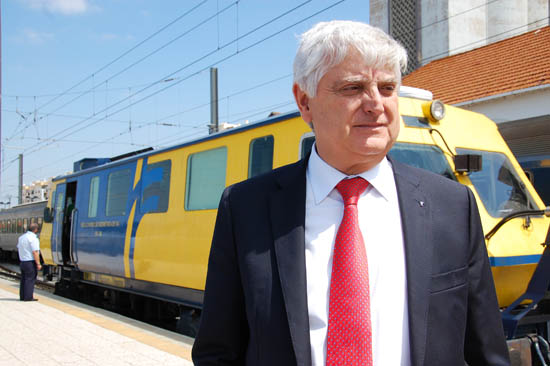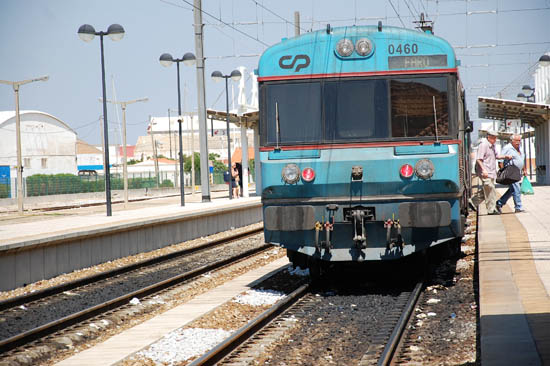 The total electrification of the Algarve Line, from Vila Real de Santo António to Lagos, will be completed in 2019, while the new rail connection to the airport of Faro will be ready for operation in 2021, announced today in Faro the chairman of the Board of Directors of REFER.
The total electrification of the Algarve Line, from Vila Real de Santo António to Lagos, will be completed in 2019, while the new rail connection to the airport of Faro will be ready for operation in 2021, announced today in Faro the chairman of the Board of Directors of REFER.
Rui Loureiro added that the works, which should start in 2017, after the current phase of studies is concluded, will cost a total of 120 million euros, which will be financed between 70 and 75% by community funds.
The connection to the airport alone, one of the most anticipated investments in terms of railways in the Algarve, will cost 62 million euros. "The system provides for a connection to the airport, with a direct branch, which will allow goods to arrive at the airport and transport passengers, namely the thousands of tourists arriving in the Algarve through that port."
The president of REFER announced these dates and values at the station in Faro, at one of the stops he made today, during an in-depth assessment trip of the operating conditions of the Algarve Line, linking Lagos to Vila Real de Santo António, aboard a railway inspection vehicle.
As for electrification, Rui Loureiro recalled that the Algarve Line only has one electrified section, from Tunis to Faro, missing the Tunes/Lagos and Faro/Vila Real de Santo António.
The official underlined that the electrification of the line “allows the profitability of another type of equipment. At the moment, CP uses diesel trains and after the refurbishment will use electric trains, which is a cheaper park». Asserting that he cannot speak for CP, the chairman of REFER recalled that the concessionary company for the transport of passengers on the Algarve Line "has publicly said that electrification will boost transport".
Electrification will allow “higher speeds, possibly higher frequency and greater channel”, since, if speed is increased, “you can have more trains, you can improve services”, explained Rui Loureiro.
 The planned interventions also include the signaling of the line, as well as the possible relocation of some stations and stops.
The planned interventions also include the signaling of the line, as well as the possible relocation of some stations and stops.
REFER's president considers that it is also important, “if municipal entities and CP itself consider it important, to relocate stations and stopovers”.
This reorganization could involve, he added, “creating some stopovers and abandoning others, in order to boost rail transport. This line is quite old, more than 100 years old, and the placement of the stations was made with assumptions of the time, which are no longer verified today».
And how many stations and stops will be relocated? Rui Loureiro has not yet provided figures, revealing only that «REFER Engineering is currently carrying out the study that will allow this relocation to be carried out».
However, he guaranteed, this first phase of works on the Algarve Line does not foresee the construction of any variants, namely to bring the railway closer to the localities or to remove it from some places – such as in the riverside area of Faro. What will happen is simpler: «on the same line, I move the platforms to other sides».
Likewise, this first phase of the works does not foresee the connection to Spain, which the REFER president says has been "counted in many hundreds of thousands of euros", with "studies showing that it is not economically and socially profitable".
Taking into account that the studies that will form the basis of the announced major works will have to be completed in 2017, Rui Loureiro also announced that, «around 2015, 2016, all municipalities crossed by the Caminho de Ferro and also CP, which is the concessionary entity for the railway transport of the Algarve Line, to verify whether or not the assumptions we are defining will be to our liking and if they satisfy social needs».


















Comments